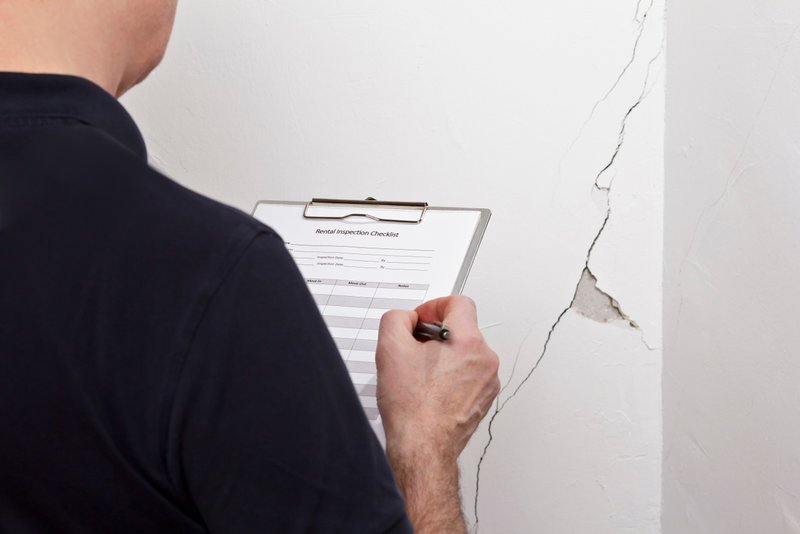When property damage hits a community managed by a Homeowners Association (HOA), the result is rarely straightforward. Unlike single-property claims, shared property claims involve overlapping coverages, shared responsibilities, and emotionally charged homeowners trying to make sense of what's covered and what’s not.
From confusion around insurance boundaries to the growing frustration of underpaid or denied claims, HOA property managers face an uphill battle. But with the right approach—and the right experts in your corner—navigating the complexities of these claims becomes a manageable task rather than a chaotic mess.
The Complexity of Shared Property Claims
HOAs oversee both common areas (like roofs, stairwells, elevators, and clubhouses) and, in some cases, portions of individual units. The policy language governing these boundaries is not always clear—and that’s exactly where problems start.
When water damage from a burst pipe impacts both a unit and a shared hallway, which policy applies? Who files the claim? What if one homeowner believes their damage is being ignored while another’s is fast-tracked? These are the kinds of questions that fuel confusion—and delay.
According to a study, homeowners often struggle to understand the limits of their coverage, especially in condo and multi-unit environments. Insurance carriers capitalize on this confusion by underpaying or outright denying claims, a tactic highlighted by Jay M. Feinman in Delay, Deny, Defend.
Where Property Managers Come In
Property managers are often the first point of contact during these events. They must interpret complex policy language, mediate disputes, and coordinate with contractors, insurers, and residents—all while maintaining transparency and trust.
Your ability to act quickly and decisively will directly impact the recovery timeline and the morale of the community. More importantly, it could be the difference between receiving full compensation for damages or accepting an inadequate settlement.

Types of Damage Common in Shared Property Claims
Insurance claims within HOAs most commonly involve:
- Water damage from plumbing failures, HVAC issues, or sprinkler malfunctions.
- Fire and smoke damage, which may affect common infrastructure and individual units.
- Wind and hail damage, especially to shared roofing systems and exterior walls.
- Microbial contamination resulting from improper or delayed water mitigation efforts.
Best Practices for HOA Property Managers
1. Clarify Policy Boundaries Ahead of Time
Before disaster strikes, review the HOA’s master policy and individual unit policies. Where do responsibilities start and end? Is coverage based on original construction materials or current finishes? The work of industry experts emphasizes the importance of knowing what is and isn’t covered—and the nuances that insurers use to avoid payouts.
2. Create a Post-Loss Action Plan
Having a pre-built claims response plan helps reduce the chaos after a loss. It should include:
- Emergency response vendor contacts
- A damage documentation protocol
- A communication chain for informing residents
- A partnership with a trusted public adjuster who understands shared property claims
3. Document Everything
Insurers require extensive proof of loss, and inadequate documentation is one of the top reasons for claim denials or underpayments.
- Take detailed photographs of all affected areas
- Collect maintenance records and previous repair documentation
- Request detailed, line-item estimates from licensed professionals
A public adjuster can ensure that your documentation supports the full scope of loss—especially when shared and individual property lines blur.
4. Engage with a Public Adjuster Early
Public adjusters are licensed professionals who represent policyholders—not insurance companies—in property damage claims. When an HOA claim involves both common elements and multiple unit owners, the complexity often overwhelms standard processes.
Working with a certified public adjuster ensures:
- Proper valuation of both shared and private losses
- Fair allocation of the total settlement
- Faster resolution through expert negotiation
As experts point out, many losses go undervalued simply because no one on the policyholder’s side knew how to push back on a lowball estimate.
Managing Resident Expectations During a Claim
Residents often assume “the insurance will take care of it.” Unfortunately, that’s rarely the case. The insurance industry is built to deny, delay, and underpay—a truth exposed by consumer advocates at NAPIA and APA. When you combine this with residents who are displaced or emotionally distressed, tensions run high. Here’s how property managers can ease the process:
- Hold town halls or Q&A sessions with residents after a loss
- Use plain language to explain coverage limits and timelines
- Send regular updates via email, HOA apps, or SMS alerts
Transparency and frequent communication prevent misinformation from spreading and help you maintain trust.

Equitable Distribution of Payouts
Once the claim is settled, the distribution of funds becomes the next challenge. Even the most accurate assessment can feel “unfair” if not communicated clearly. Here’s how to avoid disputes:
- Base decisions on documented scope of damages
- Consider using a third-party estimate validation
- Be fully transparent about how funds are being allocated
Public adjusters can assist by preparing detailed breakdowns that support fair distribution. Their advocacy ensures that all parts of the property are considered—especially when the insurer wants to minimize payouts to just the most visible damage.
Turning Challenges into Advocacy Opportunities
HOAs are more than shared buildings—they’re shared responsibilities. As a property manager, your ability to guide your community through a crisis can define your leadership.
Insurance companies will continue to exploit gaps in understanding and delay resolutions. But by working with experts, organizing early, and managing the process with clarity and purpose, you can tip the scales in your community’s favor. The only way to beat the system is to know more than the adjuster across the table—or hire someone who does.
Take Action for Your Community
Shared property claims are never simple—but you don’t have to go it alone. Schedule a call for a free claim and policy review with Velocity Public Insurance Adjusters. We help HOAs and property managers across Florida get the compensation they’re entitled to—because when the stakes are high, every detail matters.
Claim Services We Provide
Velocity Public Insurance Adjusters handles a variety of claim types for both commercial and residential property losses: weather-related damage, theft and vandalism, fire and smoke damage.
Members of
Velocity Public Insurance Adjusters is a Certified Firm with the IICRC.
IICRC Certified Firms are known for their high level of technical experience and professionalism.
With the rapid increase in consumer calls due to the demand for mitigation and restoration projects,
Certified Firms are working in the field every day and have unmatched expertise in complex restoration projects.
Client testimonials
Don't take our word for it, see what our clients are saying about us.
Contact us
Schedule a free, no-obligation, claim and policy review. Every property claim is different, and we'd like the opportunity to provide you with an assessment of your unique situation.
- Indiana
- Kentucky
- Michigan
- Ohio
- Iowa
- Wisconsin
- South Carolina
Use of Information Purpose: We use your information to send mobile messages and respond to your inquiries as necessary. This may involve sharing your information with platform providers, phone companies, and other vendors who assist in message delivery.
Protection of Information: We do not sell, rent, loan, trade, lease, or otherwise transfer for profit any phone numbers or customer information collected through the SMS program to any third party.
Disclosure: We may disclose your information if required by law, regulation, or governmental request, to avoid liability, or to protect our rights or property.
Choices and Controls Consent: Consent to receive automated marketing text messages is not a condition of any service we provide.
Opt-Out: You can opt out of receiving further text messages via the Messaging Service by responding to any of our text messages with any of the following replies: STOP, END, CANCEL, UNSUBSCRIBE, or QUIT.
Your Responsibilities Accurate Information: Ensure that the information you provide is accurate, complete, and truthful. Do not use a false or misleading name or a name you are not authorized to use.
Consequences: If we believe the information provided is untrue, inaccurate, or incomplete, or if you have joined the program for ulterior motives, we may deny you access to the program.












